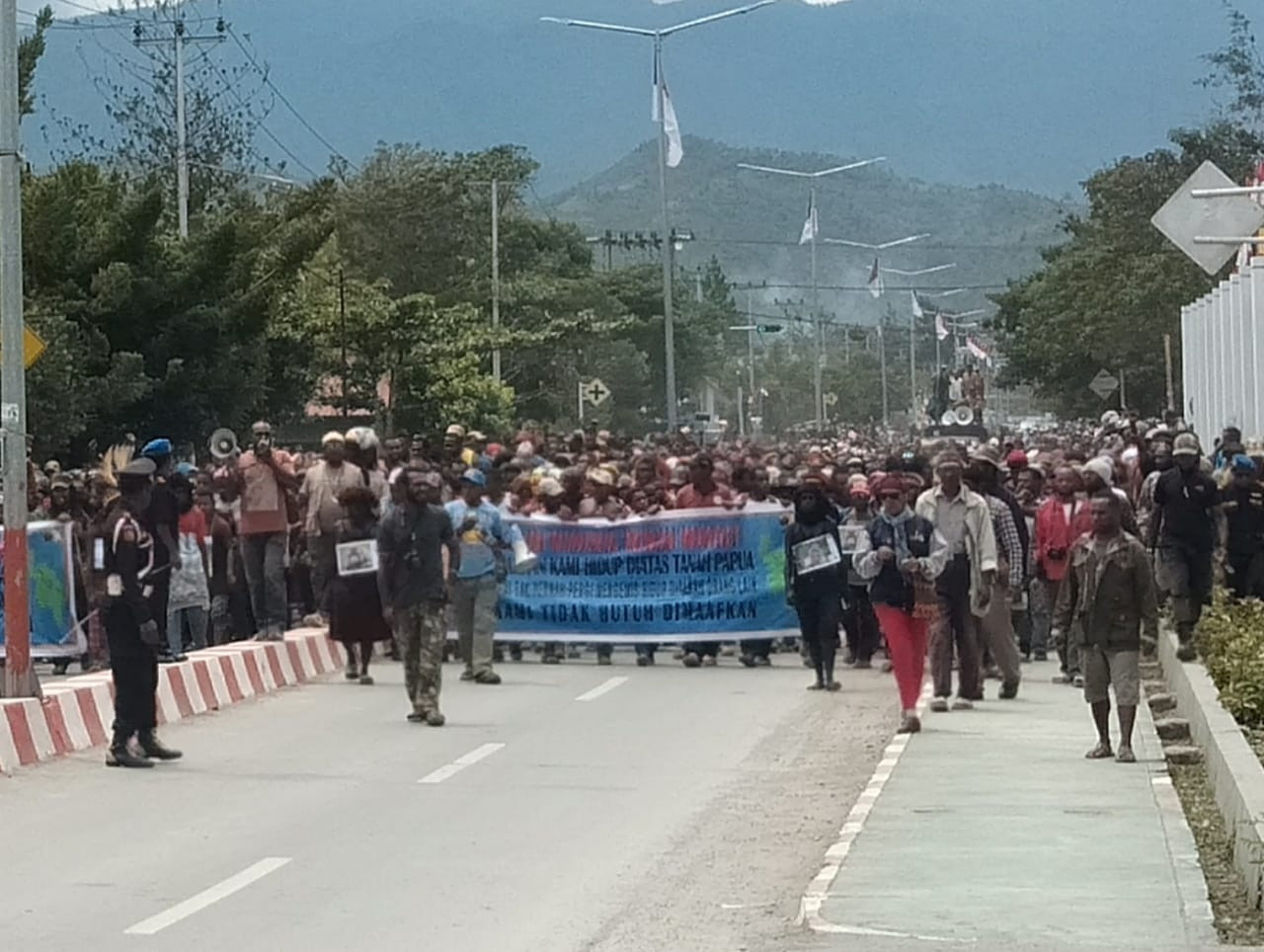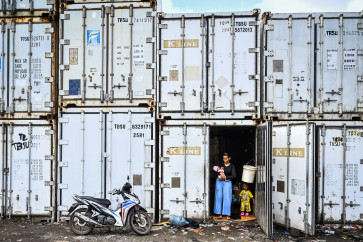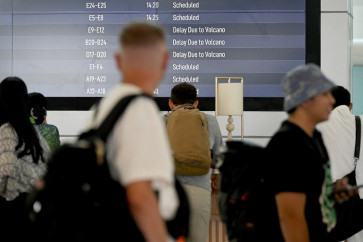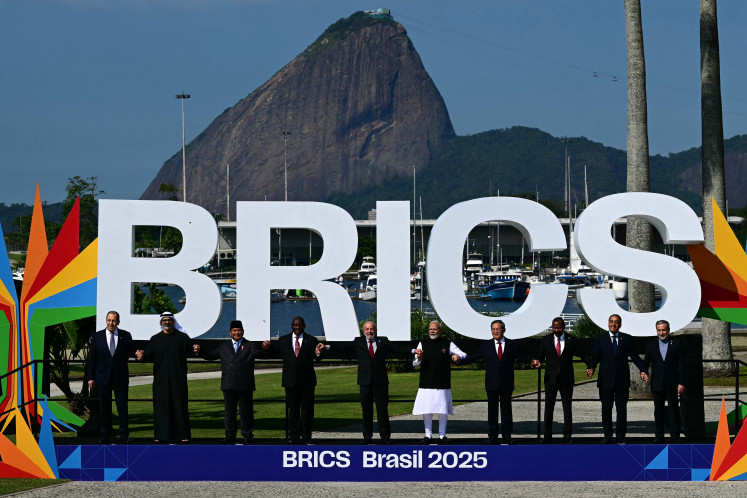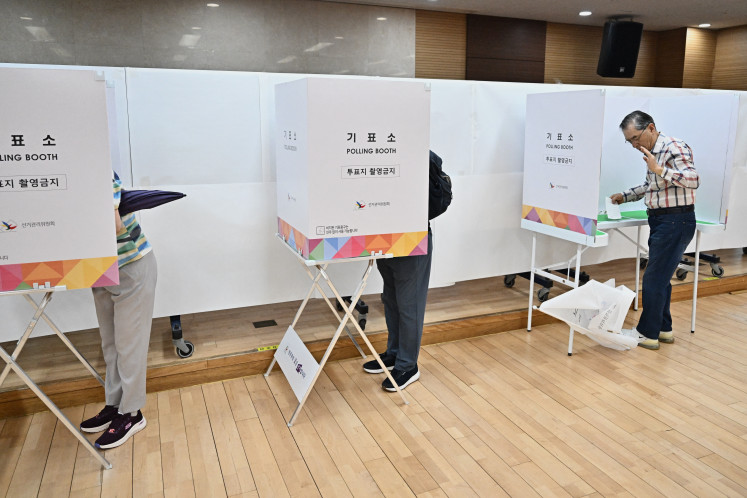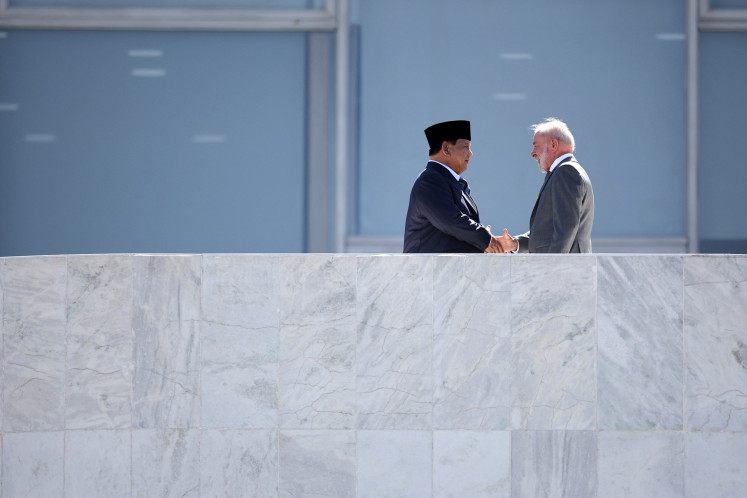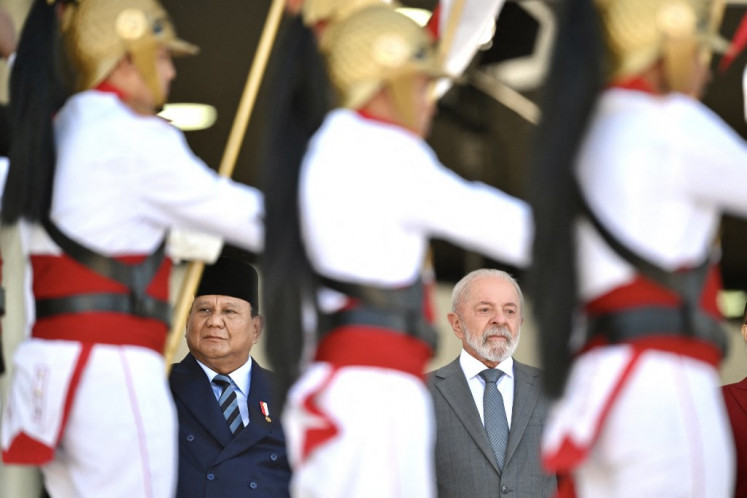Popular Reads
Top Results
Can't find what you're looking for?
View all search resultsPopular Reads
Top Results
Can't find what you're looking for?
View all search resultsEast Timor-style referendum could happen in Papua too
Many will no doubt blame the United States or Australia if a Papua exit comes to pass. But seeing the racial abuse against Papuan students and the heightened reactions in Papua, we Indonesians, not just the government, should blame ourselves. We have treated the Papuans the same way we did the people of East Timor.
Change text size
Gift Premium Articles
to Anyone
A
lmost no one, including Dili Catholic Bishop Carlos Felipe Ximenes Belo and independence fighter Kay Rale Xanana Gusmao, thought their homeland East Timor could gain independence in such a short time. While they were considering the special autonomy or limited self-governance that Jakarta had offered in January 1999, Indonesia’s third president BJ Habibie gave East Timor the option of breaking free.
One month after Habibie allowed the United Nations to organize an independence referendum for East Timor, I wrote in this newspaper that his startling decision was influenced by a desire to be remembered for East Timor. At that time, the military was confident the people in the tiny territory would remain with Indonesia.
“I will prove to the world that I can make a major contribution to world peace as mandated by our Constitution,” one of Habibie’s aides recalled him as saying. Habibie also hoped the decision would pave the way for his election in the same year. He was wrong. But he was right too, because his name is immortalized in the history of Timor Leste, the new name of East Timor.
You may laugh at me now if I forecast the Papuan people will fulfill their dream of independence much sooner than their expectations, just like the way East Timor separated from Indonesia following the historic Aug. 30, 1999, referendum.
Many will no doubt blame the United States or Australia if a Papua exit comes to pass. But seeing the racial abuse against Papuan students and the heightened reactions in Papua, we Indonesians, not just the government, should blame ourselves. We have treated the Papuans the same way we did the people of East Timor.
In a controversial interview with German magazine Der Spiegel after winning the Nobel Peace Prize along with East Timor independence fighter José Ramos-Horta in 1996, Belo described the mistreatment the East Timorese people endured from Indonesia. He said Indonesian soldiers treated East Timorese like “scabby dogs”, while the government abused them like “slaves”.
Then-president Soeharto was angered by the bishop’s statement but refrained from rebuking him openly. Belo resigned as bishop after independence.
The words “dogs”, “monkeys”, “pigs”, and “slaughter the Papuans”, were loudly chanted when a group of people, including police and military personnel and hard-line Muslim group members, attacked a Papuan student dormitory in Surabaya, East Java, on Aug. 16. They accused the students of refusing to celebrate the 74th anniversary of Indonesia’s independence. A similar incident also occurred in other cities such as Malang also in East Java and Semarang, Central Java.
Sadly, as Indonesia celebrated its freedom from colonialism, a group of people, in the name of nationalism, displayed the colonial mentality by suppressing others. What Bishop Belo recounted in the 1996 interview was practiced by the die-hard supporters of the undisputed Unitary State of the Republic of Indonesia (NKRI).
Indonesia has witnessed regional dissent, such as in East Timor and Aceh. But the conflicts mostly pitted the central government (the state) against local people. We rarely heard about anti-Acehnese or anti-East Timorese sentiments.
This is not the case in the Papua conflict, however. Papuan people not only face the central government but also non-Papuans, as happened around Independence Day. Such horizontal conflict could lead to a civil war if the government fails to handle the hostility with extra care.
In a conversation several months after the majority of East Timorese voted for independence in 1999, the legendary Indonesian diplomat Ali Alatas told me about the situation in Papua.
“Could Papua follow East Timor’s path?” I asked him.
“Papua is very different from East Timor,” he said. First, unlike Papua, East Timor was never part of Indonesia until the latter annexed the former Portuguese territory in 1975. Second, Papua comprises hundreds of ethnic and sub-ethnic groups so that they have to use the Indonesian language for their daily communication with each other. East Timor was relatively homogenous.
Third, the majority of Papuans are Protestants, comprising various congregations, and therefore it would be much more difficult to unite the people in the province into one big force. East Timor was a predominantly Catholic territory.
I admit the validity of the late foreign minister’s strong arguments, but he might never have imagined during his lifetime that we Indonesians could be so brutal toward our Papuan brothers and sisters.
We describe Indonesia as a home for all citizens, including our Papuan compatriots. That’s why we sing the patriotic song “Dari Sabang sampai Merauke” (From Sabang to Merauke, respectively the western tip of Aceh and easternmost regency of Papua).
We call our home the Unitary State of the Republic of Indonesia and will not let anyone undermine our unity as a family. In a family, father knows best. But what happens when one or another of the family members feels they receive discriminatory treatment like step- or adopted children but are forced to stay in the family?
We are too lazy to discern the roots of the Papua problem but resort to the use of force to make sure that family unity is intact, although some no longer regard the country as their home. The Papuans will only feel Indonesia is their true home when they find the love and equal treatment that they deserve as part of the family.
Remember what happened in East Timor 20 years ago could recur in Papua.

